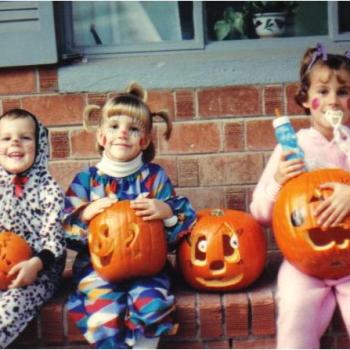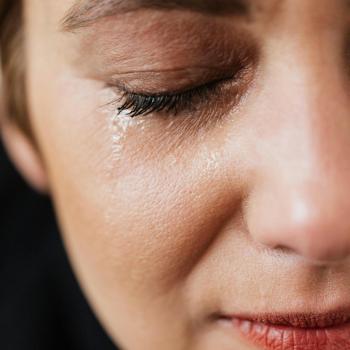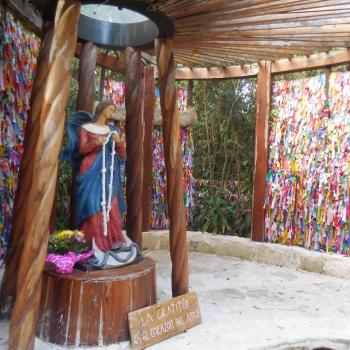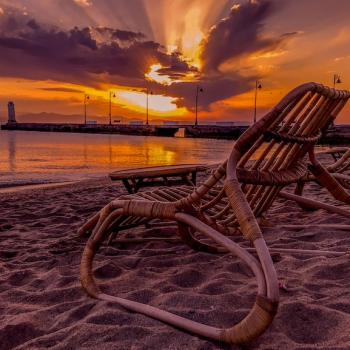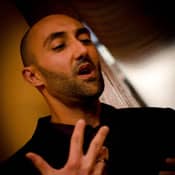All across this country—and the world, in fact—there are numerous people who seek to define Islam and Muslims in a specific and (frequently) negative manner. Islamophobes have, in fact, staked their careers on this task. There are also criminals, so-called Muslims, acting in the name of Islam in such a wrong way that provides a "definition" of the religion wholly inconsistent with its principles. The actions of these criminals are just that: criminal and twisted and do not reflect the truth. Islamophobes claim that these deviants are, in fact, only representing the truth, and any claim to the contrary is a "lie."
Hence the importance of Muslim voices owning their faith. These voices define Islam; they represent the truth. This is why the "I Speak For Myself" series is so important. Starting with the first book, I Speak for Myself: American Women on Being Muslim (White Cloud Press, 2011), American Muslim women got the chance to tell the world their story, in their own words. Now, it is the brothers' turn with All American: 45 American Men on Being Muslim, edited by Wajahat Ali (a Patheos contributor and former blogger) and Zahra T. Suratwala.
As I read the book, I was happy to see some contributors that I know and like—Mazen Asbahi, Svend White, and Shahed Amanullah. Then there were other contributors who, if I had passed them in the street, I would never have figured that they were Muslim, which proves that you can't make any conclusions about outward appearances. One such contributor is Justin Mashouf, who tells the story of his transformation from an observer to a participant in the Shiite rituals commemorating Imam Husayn, the Prophet Muhammad's (saw) grandson. Another such contributor is Davi Barker, whose political views are eye opening to say the least.
Throughout this book, the reader is treated to a wide expanse of experiences and stories that show the American Muslim community for what it is: varied and diverse, rich and colorful.
As you read story after story, one thing comes out at you: These men, as their female counterparts, are fully Muslim and fully American, and they see no contradiction in being both. Indeed, in some of the men's stories, they recount how they did not fully feel that way at first due to a variety of circumstances. Yet, they all come to this conclusion in the end.
In his essay, "Integration, not Assimilation," Aziz H. Poonawalla (a blogger at Patheos) admits that beyond "speaking for himself," he does speak for fellow Muslim Americans, "regardless of my intentions." And, he states the simple truth that "America is the greatest Islamic country on the face of the earth simply because it is a pure example that freedom of speech and faith is possible to achieve." This, Poonawalla says, is a double blessing that comes with "a welcome weight on my shoulders . . . [to] keep me upon the straight path, in faith and in citizenship."
This is but one example of how so many of the contributors feel no contradiction between being Muslim and American. Other contributors, however, refuse to wear any labels. Some embrace them all.
What I found particularly great about this book is the conversion (or reversion) narratives of many of the contributors. It is always a treat for me, a Muslim raised in the faith, to learn how Islam comes into the lives of those converted into the faith. It makes me appreciate my faith that much more.
Adisa Banjoko, an author and journalist who explores the relationship between Islam and hip hop, discusses in his essay why he converted to Islam, then one day declared he no longer believed, and then how he came back to the faith: In a fateful meeting with another musician, he related how he felt many people treated Black issues like they were of little concern, and that he felt the Black Muslims he knew were trying too hard to emulate Arab Islam instead of finding their way as African-American Muslims.
The musician told him not to let people define his relationship with Allah, and that "Your relationship with God belongs to you." Writes Banjoko, "He saved my deen (religion). Imagine: a chance meeting on a rainy day at a rap convention saved my deen."
The men in this book are writers, politicians, activists, filmmakers, journalists, doctors, and poets. They are our neighbors and co-workers; teammates and public servants; golf buddies and friends. They are my brothers in faith and our brothers in country. And they all want to make this world a better place.
As Congressman Keith Ellison (one of two Muslims in the U.S. House of Representatives) writes in the Foreword: "It is my hope that each of you will emulate these writers. If you can make a movie, make one. If you can sing a song, sing it. If you can write a play, write it. If you want to run for office, run. But do something to make this world a better place." As these American Muslim men speak for themselves in this book, they take the reader on an amazing journey. Reading their stories has enriched me, and it will enrich you as well.
12/2/2022 9:09:41 PM
